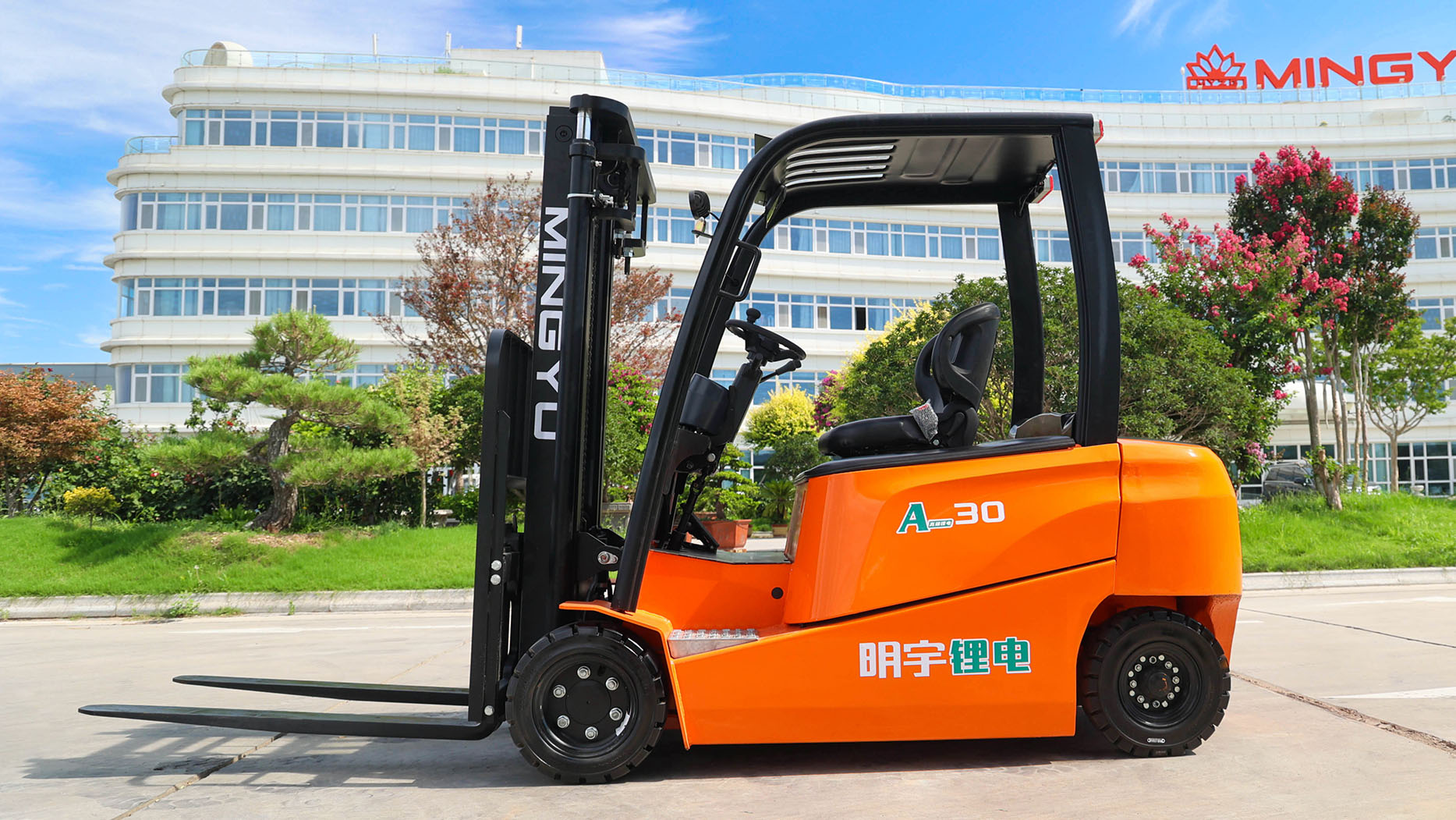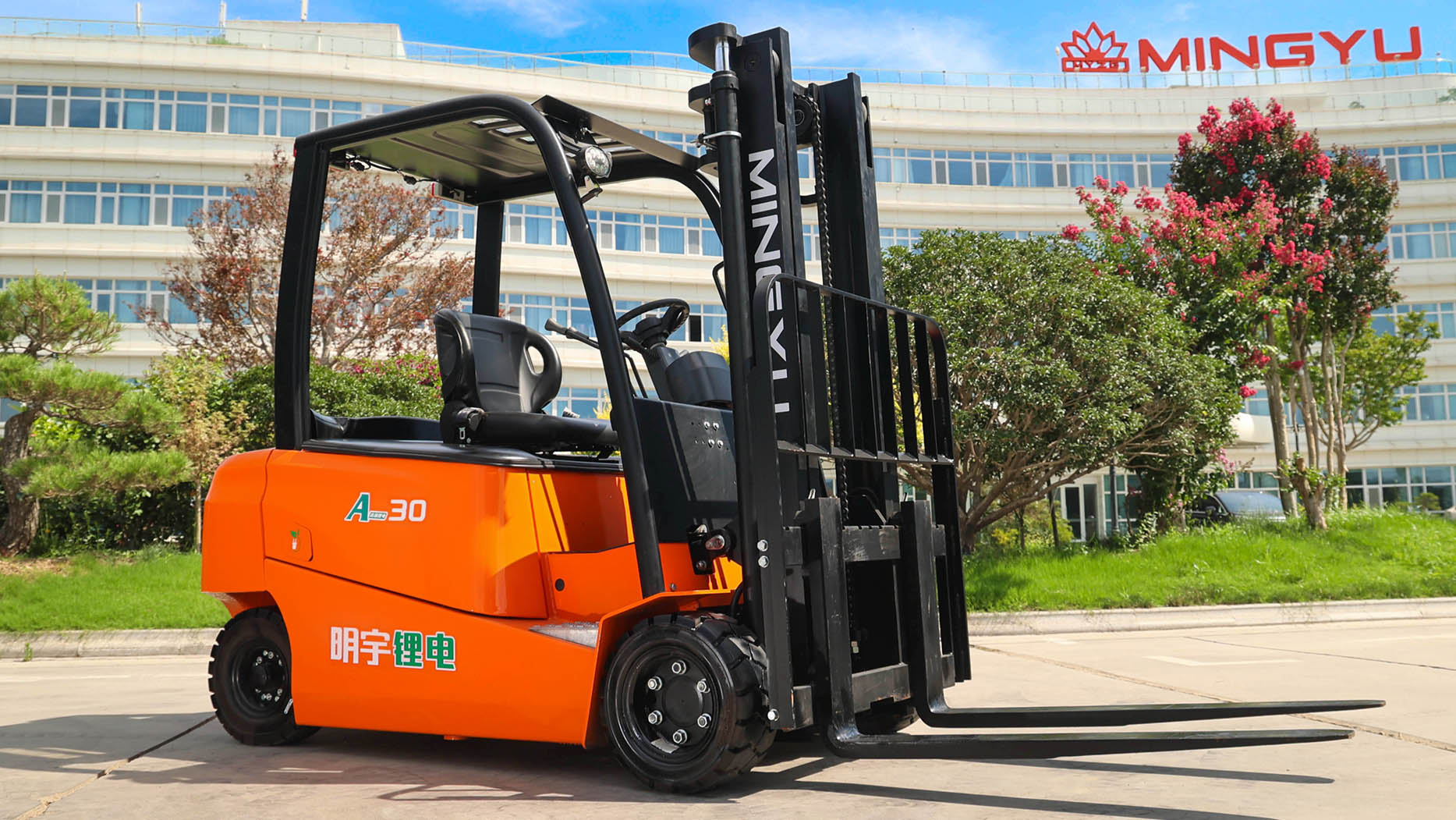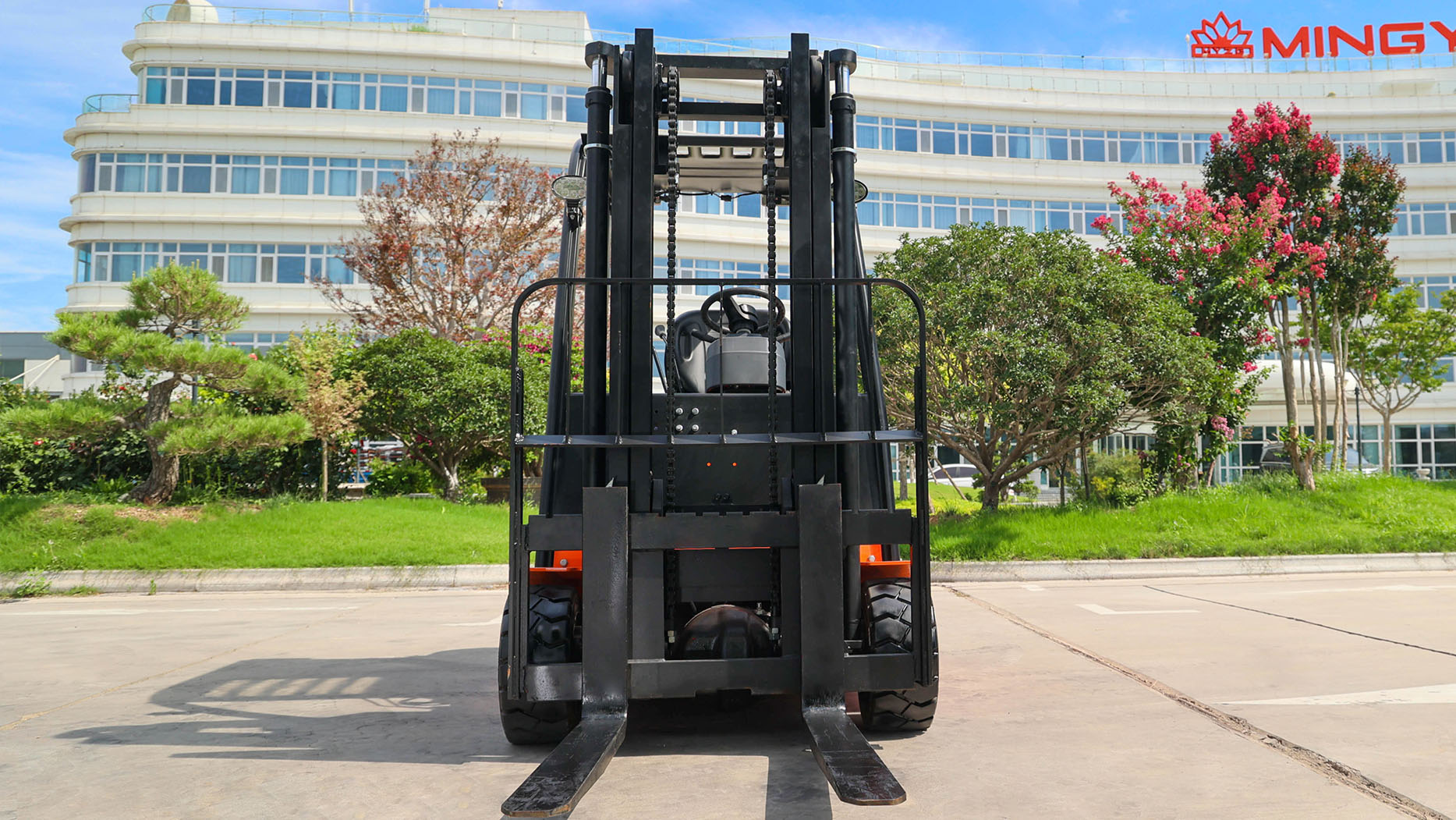The question isn't whether to buy a forklift, but whether a new or a carefully selected used forklift is the right fit for your budget and operational demands. This comprehensive guide will explore the myriad benefits of purchasing used forklifts, detail the various types available, outline critical factors to consider during your selection process, and guide you on where to find the best deals.
Why Choose Used Forklifts? The Unbeatable Advantages
The decision to invest in a used forklift truck comes with a host of compelling benefits for businesses of all sizes:
Significant Cost Savings: The most apparent advantage. Used forklifts are considerably more affordable than their brand-new counterparts, allowing you to allocate capital to other critical areas of your business or acquire multiple units for the price of one new one.
Reduced Depreciation: Like cars, new forklifts experience their steepest depreciation in the first few years. By purchasing a used model, you bypass this initial value drop, meaning your investment retains its value more effectively over time.
Immediate Availability: Unlike new forklifts that often have lead times for manufacturing and delivery, used forklifts are typically available for immediate purchase and deployment, allowing you to quickly meet unexpected demands or replace a downed machine.
Proven Reliability: A well-maintained used forklift has already demonstrated its ability to perform in real-world conditions. Many reputable dealers rigorously inspect, service, and even refurbish used equipment, ensuring they meet high standards of performance and safety.
Environmental Sustainability: Opting for a used forklift contributes to a circular economy, extending the lifespan of existing machinery and reducing the environmental impact associated with new manufacturing.
Broader Selection: The used market often boasts a wider variety of makes, models, and configurations, potentially offering you access to equipment that might be discontinued or hard to find new, yet perfectly suited for your specific niche.
Types of Used Forklifts Available for Sale
The used forklift market mirrors the new market in its diversity, offering solutions for nearly every application:

By Power Source:
Electric Forklifts:
Ideal for: Indoor operations, warehouses, food processing, and any environment where emissions, noise, and air quality are concerns.
Common Types: Counterbalance, Reach Trucks, Pallet Jacks, Order Pickers.
Considerations: Battery health (lead-acid vs. lithium-ion), charging infrastructure requirements.
LPG (Liquefied Petroleum Gas) Forklifts:
Ideal for: Both indoor (with proper ventilation) and outdoor use. Versatile and easily refuelled with swappable tanks.
Common Types: Counterbalance.
Considerations: Propane tank exchange/refill logistics.
Diesel Forklifts:
Ideal for: Heavy-duty outdoor applications, construction sites, demanding industrial environments. Offer high power and torque.
Common Types: Counterbalance, Rough Terrain Forklifts.
Considerations: Emissions (requires good ventilation if used indoors), higher noise levels.
Gasoline Forklifts:
Ideal for: Similar to LPG, but generally less common in industrial settings due to less efficiency and higher running costs compared to LPG. Often found in older models.
Common Types: Counterbalance.
Considerations: Fuel cost and availability.
By Type of Truck:
Counterbalance Forklifts: The most common type, available in electric, LPG, diesel, and gasoline. Used for general lifting and moving of palletized loads.
Reach Trucks: Designed for high-density storage in narrow aisles, with a mast that extends forward to "reach" into racking. Typically electric.
Pallet Jacks (Powered Pallet Trucks): For horizontal transport of pallets. Ride-on or walk-behind versions.
Order Pickers: Designed for operators to lift with the load to pick individual items from shelves at height.
Rough Terrain Forklifts: Large pneumatic tires and robust frames for navigating uneven outdoor ground. Usually diesel.
Telehandlers (Telescopic Handlers): Feature a boom that extends forward and upward, offering greater reach and lift height, often used in construction and agriculture.
Stackers: Similar to pallet jacks but can lift pallets to lower racking heights.
Key Factors to Consider When Buying a Used Forklift
Purchasing a used forklift requires careful inspection and due diligence to ensure you get a reliable machine that meets your needs.
 Assess Your Application Needs:
Assess Your Application Needs:
Load Capacity: What is the maximum weight you need to lift? Always choose a forklift with a capacity comfortably above your heaviest anticipated load.
Lift Height: How high do you need to reach? Consider mast type (simplex, duplex, triplex, quad) and its extended height.
Operating Environment: Indoor/outdoor? Rough terrain? Cold storage? Narrow aisles? This dictates power type, tire type (cushion, pneumatic, poly), and overall truck dimensions.
Usage Frequency: Light, moderate, or heavy daily use? This impacts the importance of hour meter readings and condition.
Thorough Visual and Operational Inspection:
Hour Meter Reading: This is like a car's mileage. Lower hours generally indicate less wear, but heavy usage (multiple shifts) can age a machine faster than hours suggest.
Frame & Body: Look for cracks, excessive dents, or rust, especially around stress points. Check for signs of previous heavy repairs or poor welding.
Mast & Forks:
Mast: Check for excessive play, cracks, or damage to channels, rollers, and chains. Ensure smooth operation when lifting and lowering. Look for signs of improper lubrication or wear on rollers.
Forks: Inspect for bends, twists, cracks, or excessive wear at the heel. Forks are safety-critical and expensive to replace.
Tires: Check for significant wear, chunking, or damage. Pneumatic tires should have good tread. Cushion tires should not be worn past the wear line. Replacing tires can be a significant cost.
Hydraulic System: Look for any leaks (fluid puddles, wet hoses/cylinders) around the mast cylinders, tilt cylinders, and hydraulic lines. Operate all hydraulic functions to ensure smooth, unhesitant movement.
Power Source (Engine / Battery):
IC Forklifts: Check for unusual engine noises, excessive smoke (blue/black), fluid leaks (oil, coolant), and the condition of hoses and belts. Start it cold if possible.
Electric Forklifts: Inspect the battery for corrosion, cracked casings, or bulging. Ask for battery maintenance records and the last full discharge test. A weak battery can significantly impact performance and lead to costly replacement.
Brakes: Test both service brakes (foot pedal) and the parking brake for responsiveness and holding power.
Steering: Check for excessive play in the steering wheel or unusual noises during turns.
Operator Compartment: Ensure the seat, seatbelt, controls, lights, horn, and all safety interlocks (e.g., operator presence system) are fully functional. The overhead guard should be free of significant damage (cracks, bends over ¾ inch deflection).
Fluid Levels: Check engine oil, transmission fluid, hydraulic fluid, and coolant for proper levels and contamination.
Review Maintenance Records: A well-documented service history indicates proper care and helps predict future maintenance needs. Avoid forklifts with no records.
Professional Inspection: If you're not an expert, consider hiring a certified forklift technician to conduct a pre-purchase inspection. This small investment can save you from major future expenses.
Dealer Reputation & Support:
Authorized Dealers: Often offer "Certified Pre-Owned" programs, meaning the forklift has undergone a multi-point inspection, necessary repairs, and comes with a limited warranty. This provides the highest level of assurance for a used unit.
Independent Dealers: May offer competitive prices but ensure they have a good reputation for servicing what they sell.
Warranty: Understand what type of warranty (if any) is offered. Even a short 30- or 90-day warranty can provide peace of mind.
Parts & Service: Can they provide ongoing parts and service support for the specific make/model?
 Where to Find Quality Used Forklifts for Sale (in Singapore and beyond)
Where to Find Quality Used Forklifts for Sale (in Singapore and beyond)
Authorized Forklift Dealerships (e.g., Crown, Toyota, Hyster-Yale, Jungheinrich): These are often the most reliable source for high-quality used forklifts, especially "Certified Pre-Owned" units that have undergone rigorous inspection and refurbishment by factory-trained technicians. In Singapore, companies like Crown Equipment, United MHE, and others offer used fleets.
Specialized Used Equipment Dealers: Many independent dealers specialize solely in used material handling equipment, often having a wide inventory across various brands.
Online Marketplaces & Aggregators: Websites like MachineryTrader, Forklift Inventory, and local classifieds (e.g., Carousell for smaller units, or industry-specific portals) allow you to browse listings from various sellers. Be cautious and verify sellers thoroughly.
Auctions: Can offer significant savings but come with higher risk ("as-is, where-is" sales) and require expert knowledge for on-the-spot assessment.
Direct from Companies: Sometimes businesses sell off their own used forklifts directly, potentially offering good deals but requiring more due diligence on the buyer's part.
Navigating the Purchase Process
Get a Detailed Quote: Ensure the price includes all components, attachments, delivery fees, and any applicable taxes.
Payment Terms: Clarify payment methods and terms.
Transportation: Confirm who is responsible for transporting the forklift to your site and whether there are additional costs.
Operator Training: Ensure your operators are trained and certified for the specific class and type of forklift you purchase, regardless of whether it's new or used. In Singapore, courses like WSQ Operate Forklift are essential.
Conclusion: The Smart Investment in Used Forklift Trucks
Investing in a used forklift truck can be a highly intelligent financial and operational decision for your business. By carefully evaluating your needs, conducting thorough inspections, and partnering with a reputable supplier, you can acquire a high-performing, reliable machine at a fraction of the cost of a new one. This strategic approach allows you to enhance your material handling capabilities, maintain budget control, and support sustainable business practices. Don't let the term "used" deter you; a well-chosen pre-owned forklift is a proven workhorse ready to boost your productivity for years to come.
Post time:Jun.04.2025
